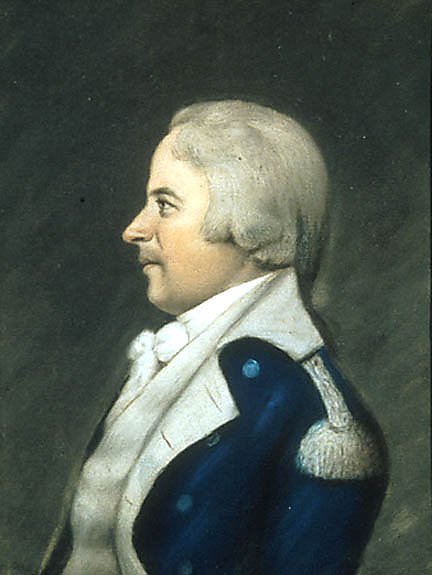Get Today in Masonic History into your Inbox. Sign up today for one of our email lists!
Need an article for your Trestleboard/Newsletter see our Use Policy
William Hull is Born

Today in Masonic History William Hull is born in 1753.
William Hull was an American soldier.
Hull was born on June 24th, 1753 in Derby, Connecticut. He graduated from Yale University in 1772 and went on to study the law until he passed the bar in 1775.
During the American Revolution, Hull joined a local militia as a captain. He was quickly promoted to major and then lieutenant colonel. He served in several battles including the battle of Princeton, the battle of Saratoga and the battle of Trenton. He was recognized for his service by George Washington and the Continental Congress. He was also friends with American patriot, Nathan Hale. Hull tried to convince him not to go on the spy mission which cost him his life. It was Hull who actively promoted Hale's famous final words "I only regret that I have but one life to give for my country."
In 1805, President Thomas Jefferson appointed Hull as the governor of the Michigan Territories. There he was responsible for several treaties between the United States and Native American tribes for land.
As the War of 1812 approached, Hull was asked to accept another commission to lead the army in the Michigan area. He was offered 300 regular army troops supplemented by 1,200 militia. At first he declined the offer as he didn't feel at the age of 60 he should accept another military commission. When the second choice to command the troops passed away, Hull decided to accept the commission. It can be argued it was his first mistake leading to his court martial.
In June of 1812 Hull was marching his troops toward the Michigan territory. When he got to the Maumee river he decided to send a schooner ahead via the waterway. The Secretary of War sent two letters to Hull when the war began, the first was by special messenger and did not mention the declaration of war. The second, he sent by regular post, was more specific. It arrived two days after Hull sent the schooner, which was promptly captured by British forces. On the schooner were battle plans for attacking various British forts.
Hull's final military failure was when he surrendered Fort Detroit to the British. This was due to Hull's belief he was outnumbered by British forces. In reality local tribes allied with the British were scattered around the fort making as much noise as possible to convince him there was a larger force. After his surrender he was court-martialed for cowardice and dereliction of duty. He was sentenced to death by the court martial, which President Madison pardoned.
Hull wrote two books to try and clear his name, both were well received by the public as a whole. Most historians agree with Hull's assessment, he was made a political scapegoat for the poor planning and poor communication on the part of the war American effort.
Hull passed away on November 29th, 1825.
Hull was a member of Washington Lodge No. 10 which was a traveling lodge out of West Point, New York which was chartered in 1779. He must have had a previous Masonic membership as he is listed attending a St. John's Day celebration months before the Chartering of Washington Lodge No. 10. He was the Junior Warden of Washington Lodge No. 10. He later affiliate with Meridian Lodge in Natick, Massachusetts where he became Worshipful Master in 1797.

